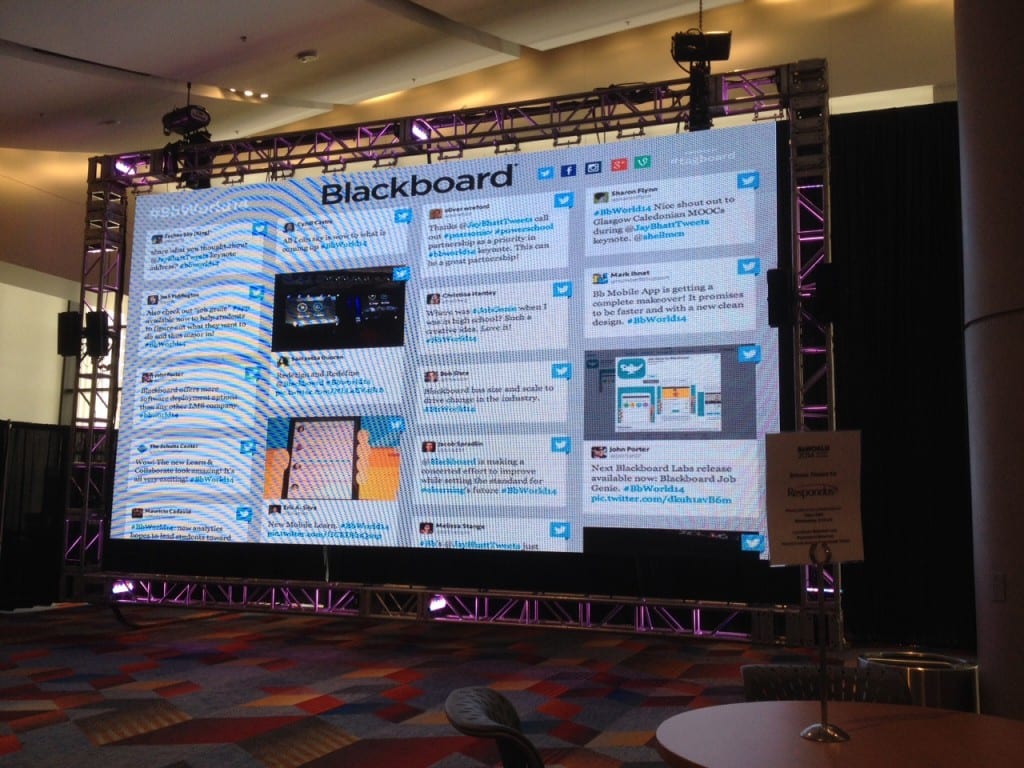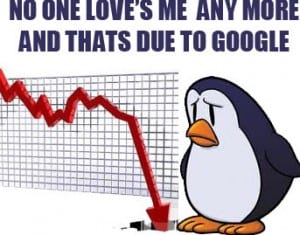Twitter is the ultimate in contagious self-promotion. With over 2500 delegates at #Bbworld14 it was a challenge to stand out from the crowd. Social media is one of the few ways to achieve a permanent ‘presence’. In every session I attended the majority were heads down working on a mobile device. I understand this. Apart from the ease of making digital notes, the tweeting motivation was strong. You don’t travel all that distance to be invisible.
There are multiple layers to social media as well as a multitude of options and #BBworld14 made good use of them, as you would expect. Even the Twitter Wall was huge!
In the world of social media your audience is often singular and cen be seen in the mirror. My Twitter stats from the event might be derisable to some, but for me they’re now a challenge to emulate!
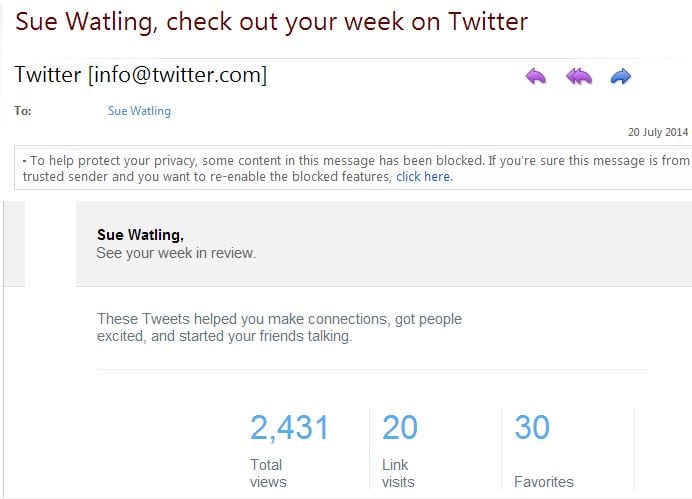
This tweet was picked up by one of the Storify collections which inspired me to make my own very first Storify Story using tweets and photos from the event. I was impressed with the ease of the software. It does all the work for you and easily brings together any content with your name on across a whole range of social media. I linked it to Twitter and Fickr to produce a useful reminder of the event.
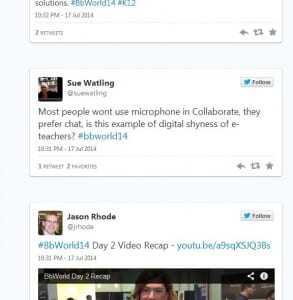
Lastly, I became 4130th person to be followed by @Blackboard! 🙂
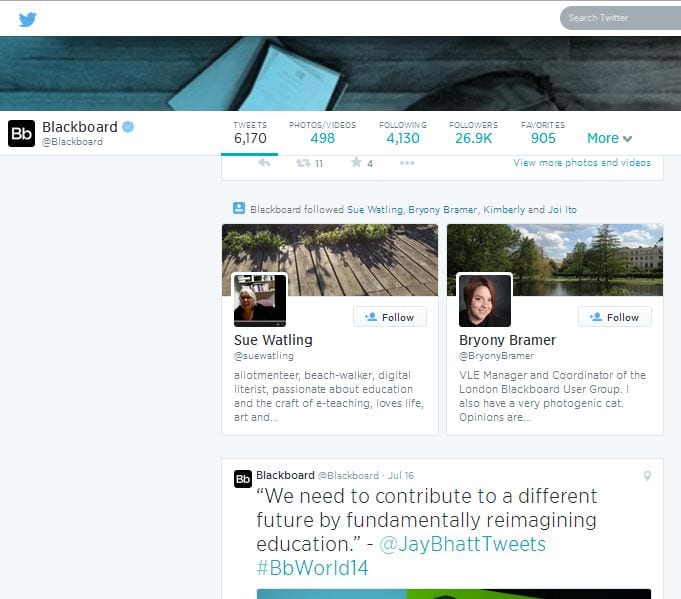
Our digital identity is integral to digital literacies. Social media platforms make it easy for mistakes and the permanent nature of digital footprints mean errors made in haste can truly be repented at leisure. Whether Google will agree to taking down something you later regret is another issue but for the majority of people ‘think before you link‘ is essential. Sometimes it’s less about your own actions and more about the social media actions of others. Storify listed everyone who appeared in my #BbWorld14 story with an option to contact them and it was surprising how many faces showed up which I’d forgotten I’d included in tweets. Not all social media does this. Maybe they should.
